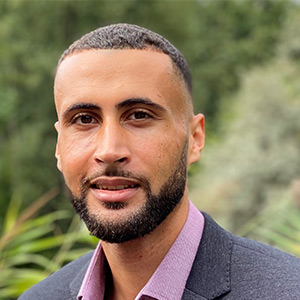On 21 May, Judd Devermont, the director for the Africa Programme at the Center for Strategic and International Studies (CSIS) moderated a discussion on ‘Digital Solutions to COVID-19 and Urban Challenges in Sub-Saharan Africa’ featuring Max Cuvellier, Head of Mobile for Development (M4D) at the GSMA, Astrid Haas, Policy Director at the International Growth Centre (IGC) and Workou Gachou, Managing Director for Africa at the U.S. International Development Finance Corporation. The panel focused on the opportunities and challenges surrounding the deployment of digital solutions to solve the challenges posed by urbanisation in Sub-Saharan Africa, particularly the COVID-19 pandemic.
Cities are growing rapidly across Sub-Saharan Africa, but contrary to past urbanisation trajectories in other regions, the expansion of cities is rarely accompanied by structural transformation. As a result of the lack of manufacturing and other job opportunities, a lot of urban growth is absorbed by informal settlements, where the majority of the urban population in Sub-Saharan Africa lives. As a consequence, many municipalities and city authorities are struggling to provide access to affordable and reliable basic services – a key prerequisite to ensuring greater social mobility.
The emergence of COVID-19 has exacerbated these challenges, hindering daily economic activities of individuals working in the expansive informal sector and increasing the health risk for urban dwellers, who often lack critical basic services such as water or sanitation. Fortunately, the expansion of mobile connectivity throughout Africa has enabled an emergence of digital solutions that are making vital basic services more accessible and affordable for the urban poor. In Sub-Saharan Africa, the total number of unique mobile connections exceeds 456 million, opening the doors to a vast array of technological solutions, such as pay-as-you-go (PAYG) models or tailored big data use cases, which can help service providers and city authorities meet the basic service requirements of a rapidly growing urban population. This is particularly important in the context of COVID-19.
You can listen to our discussion on this in the video and we’ve highlighted some of the key points below.
According to the International Growth Centre, across Africa 168 million people have not been able to meet their pre-COVID consumption patterns. As the IGC’s Astrid Haas, who’s based in Kampala, stressed to listeners, about 89 per cent of household heads are employed in the informal sector in Uganda. These workers living on a day-to-day salary are at risk of severe food insecurity if the government fails to support them.
Building new infrastructures such as social safety nets during a crisis is highly challenging, which makes taking advantage of and scaling already existing infrastructures all the more important. The mobile internet usage gap (3.3 billion who have access to networks but are not using the internet) represents such an opportunity. Similarly, with one billion registered mobile money accounts, of which 470 million are in Sub-Saharan Africa, there is great potential for mobile money adoption and use to be scaled up. The digitisation of payments cannot only help to slow the progression of the epidemic by reducing the circulation of cash, but it can also stimulate economic activity and help governments and the diaspora support those who urgently need it with social transfers and remittances. The GSMA M4D’s Max Cuvellier points to the collaboration between Cote d’Ivoire’s state-run COVID emergency fund and Orange, which allowed poor households to rapidly receive targeted assistance via mobile money. Orange is also facilitating the transfer of mobile money by opening up new remittance corridors from France to Burkina Faso and Morocco. Meanwhile in Rwanda, where National Bank of Rwanda instituted a range of policy measures to support business and individuals, while also encouraging the use of digital payments, the growth in person-to-person (P2P) transfers, in both value and volume, has been staggering.In Togo, the government deployed a new innovative social assistance scheme named Novissi, which means ‘solidarity’ in the local dialect. It provides mobile money cash transfers to support Togolese informal workers and allows them to receive a state grant worth at least 30 per cent of the minimum wage. Over 1.3 million have already registered, with women receiving the highest pay-outs, as they play an essential role in child duties (see Figure 1).
Figure 1 – Figures from the Novissi government scheme in Togo as of 27 May 2020
Source: https://novissi.gouv.tg/en/home-new-en/
Workou Gachou reveals that the Development Financial Corporation (DFC), which has provided financing to mobile operators such as Africell, sees an important role for development finance institutions to further advance connectivity on the African continent in order for more innovative solutions to proliferate. During these times of economic hardship caused by COVID-19, the DFC is deferring principal payments for their clients for the coming months while they continue to work in mitigating the impact the pandemic has on these populations. One example Is Twiga Foods, which received a $5 million loan from the DFC to improve food security in Kenya. The agritech start-up, which has also been supported by the GSMA Ecosystem Accelerator Innovation Fund, runs a mobile-enabled B2B food supply platform that supplies fresh fruits and vegetables sourced from farmers in rural Kenya to small- and medium-sized vendors, outlets and kiosks in the country’s capital, Nairobi. The cashless platform allows Twiga Foods to offer higher prices and a guaranteed market to farmers, which otherwise have to rely on costly intermediaries, and lower prices whilst also guaranteeing a reliable supply to vendors. Consumers also benefit as they are able to buy fresher products at lower prices thanks to a more efficient supply chain.
The DFC has also mobilised investments to commit to its new ‘Health and Prosperity Initiative’, which aims to focus on the health value chain in developing countries with a major focus on digital health. The DFC also looks to improve the creditworthiness of cities and utilities. As we stressed in our recent report, less than 20 per cent of cities in developing countries are considered to be creditworthy enough to issue bonds to local investors, and only four per cent can access international capital markets, which, along with poor domestic resource mobilisation, has prevented cities from making critical investments that would make them more inclusive. Innovative solutions such as smart meters can also help urban utilities improve their creditworthiness, whilst also making them more resilient to future shocks such as pandemics. In Niger’s capital, Niamey, a partnership between the water utility, Société d’Exploitation des Eaux du Niger (SEEN), Orange, and CityTaps (a start-up working with African water utilities), allowed the utility to improve revenue collection while also extending more affordable services to the urban poor.
The DFC has also supported smart transport company, Tugende, in Uganda to expand its lease-to-own financing to motorcycle taxi drivers so that they can buy their own motorcycles in less than two years through affordable weekly payments. Digital solutions also play a crucial role in broader challenges facing the urban transport sector. Haas of the IGC points to the example of the Kampala City Authority, which also worked on a project with our M4D Utilities programme. That project leveraged digital solutions to improve sanitation services, turning to mobile big data to help coordinate informal transport by assigning and distributing routes across different transport solutions and stakeholders. Using mobile data allows municipalities to map out congestion times and zones and allows decision-makers to prioritise investment and focus where needed.
Mobile data is also critical to inform smart COVID containment policy, which is tailored to the realities of Sub-Saharan African countries, and takes into account the policy trade-offs they face. Since traditional data sources in many countries are quite sparse, mobile big data, as well as insights derived from high frequency phone survey data can be vital inputs. As new digital solutions and ways to capture data are rapidly deployed, it is critical to keep track of privacy concerns, as the GSMA AI for Impact team, which currently works with developing country governments on mobile big data solutions in the context of COVID-19, stressed in a recent report.
Cuvellier emphasises the need to ensure that end user protection is not compromised, while also cautioning that newly deployed digital solutions should not exacerbate existing inequalities, but for partnerships between the private and public sector to ensure greater inclusivity. It is key that data collection of any form is done in a transparent way and specifies what data is being collected, for what end use and for how long. It is also important to understand the limitations surrounding the collection and use of MNO data, as often there may be restrictions in how MNO data can be used and shared. In some cases, that data cannot leave the MNO or the country due to regulations, but they may be able to work with authorities to share an anonymised macro-level view to help decision-makers as data is important to act promptly and quickly. Simultaneously, adoption barriers such as low digital literacy or product design (limited local language availability) also have to be overcome.
New mobile big data use cases are emerging on a daily basis. These include the use of mobile data to monitor the impact of the economic shock caused by COVID-19 on different sectors of the economy, mapping out the resource requirements of health systems and random sampling for more representative testing. It is critical that privacy and consumer protection standards continue to be followed and updated.
COVID-19 is unquestionably a generational challenge for cities in Sub-Saharan Africa, but it can also drive and fuel usage and adoption of digital technologies, as well as the adoption of bold reforms that can make cities more inclusive, more sustainable, and more productive.
We would like to end this blog by thanking the CSIS Africa Programme and fellow participants for organising and hosting such an interactive and relevant online event, which provided a platform for key stakeholders to share their perspectives and solutions to the COVID-19 pandemic and other urban development challenges across Sub-Saharan Africa.
The GSMA Mobile for Development (M4D) Utilities programme is funded by the UK Department for International Development (DFID), USAID as part of its commitment to Scaling Off-Grid Energy Grand Challenge for Development and supported by the GSMA and its members.





